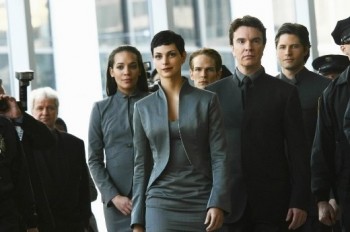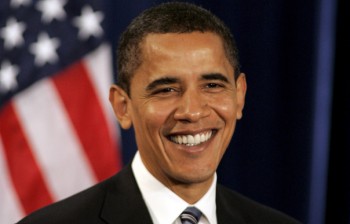So I watched the president’s appearance before the GOP House caucus.
It came, of course, two days after Mr. Obama delivered his State of the Union address. Drafting an SOU is generally a team effort. I have been on one of those teams (1988), penning the best received, per the pulse polling, section of that speech. My take on this one? A net negative for the president. The internal contradiction (for example, calling for a spending freeze to control the deficit and a new stimulus bill), the petty partisanship (he’s still blaming Bush), and the bad manners (his hit on the Supreme Court) were turn offs for the disillusioned independents he needs to reach.
The visit to the GOP caucus was a different matter. Both sides came out winners, I thought, in part because both engaged issues seriously and courteously. It was exactly the kind of respectful exchange that independent voters have been demanding.
The Republicans made the absolutely true point that the White House has been unwilling to engage with them for a year now, with GOP critiques and alternative proposals belittled or ignored at every turn. The “Party of No” hit has been particularly galling to the GOP members, who have advanced a full suite of alternatives on health reform. GOP members made clear that, from their point of view, the White House’s idea of bipartisanship has been that Republicans should accept every detail of Administration proposals without an edit. Negotiation and compromise have not been in anyone’s vocabulary on the Democratic side.
The president seemed to be sticking by that “my way-or-the-highway” stance in the substance of his remarks. His “you-are-spouting-talking-points” jab sounded as though he was spouting a talking point himself, which he was. But his defense of the substance of his positions — particularly on the spending run-ups he inherited — was, I thought, compelling in places. And his remark that Republicans were happy criticize earmarks even as they sought them for their own districts was totally fair. Most of all, just being there, engaging seriously and promising to keep it up (as in any case he has to do in the wake of the Massachusetts voting), will count in his favor among independents, at least that’s my guess.
So both sides won. The Congressional Democratic leadership may be another matter.
This past week I attended a small dinner that included prominent figures on both sides of the health care debate, among them one of the very most senior Democratic insiders. As the arguments got hot, the Democrat advocated trying for passage through reconciliation or wholesale House adoption of the Senate plan. Either ploy would take the threat of a Senate filibuster out of the game. He didn’t seem to grasp that the cost of the White House and Democratic Congressional leadership’s brushoff of the GOP throughout 2009 is that they probably cannot muster a majority for either approach on the floor of the House today. Democratic backbenchers understand the news from Massachusetts, even if the Senate majority leader and the House speaker don’t.
 During the holidays Clark called me and said, “Ed, you’re lookin’ like a fool with your pants on the ground.” And I said, “What?!?” And he said, “Oh, nevermind, it’s just something I’ve been working on with a client. It probably won’t go anywhere.
During the holidays Clark called me and said, “Ed, you’re lookin’ like a fool with your pants on the ground.” And I said, “What?!?” And he said, “Oh, nevermind, it’s just something I’ve been working on with a client. It probably won’t go anywhere.
 If a city like San Francisco circa 1989 could pull itself up by the bootstraps and launch into the 21st century, Haitians should see a blanket of opportunity unfolding before them.
If a city like San Francisco circa 1989 could pull itself up by the bootstraps and launch into the 21st century, Haitians should see a blanket of opportunity unfolding before them. As any PR flak knows, the best way to knock your client’s bad news off the front pages is for worse news to catch reporters’ attention. Less scrupulous hucksters will fabricate rumors and stories to help move the media. But sometimes events just fall into place.
As any PR flak knows, the best way to knock your client’s bad news off the front pages is for worse news to catch reporters’ attention. Less scrupulous hucksters will fabricate rumors and stories to help move the media. But sometimes events just fall into place.
 article for getting the GOP off message in the face of what should be a historic midterm rebuke of the governing party.
article for getting the GOP off message in the face of what should be a historic midterm rebuke of the governing party. If there’s one storyline about President Bush I’ve never had any patience for, it’s the idea that he was on an endless holiday during his time in office. Reporters loved to bandy about
If there’s one storyline about President Bush I’ve never had any patience for, it’s the idea that he was on an endless holiday during his time in office. Reporters loved to bandy about  ‘Tis the season for family, and what better way to celebrate family than to bear witness to the diverse expertise of one prominent British house?
‘Tis the season for family, and what better way to celebrate family than to bear witness to the diverse expertise of one prominent British house?
